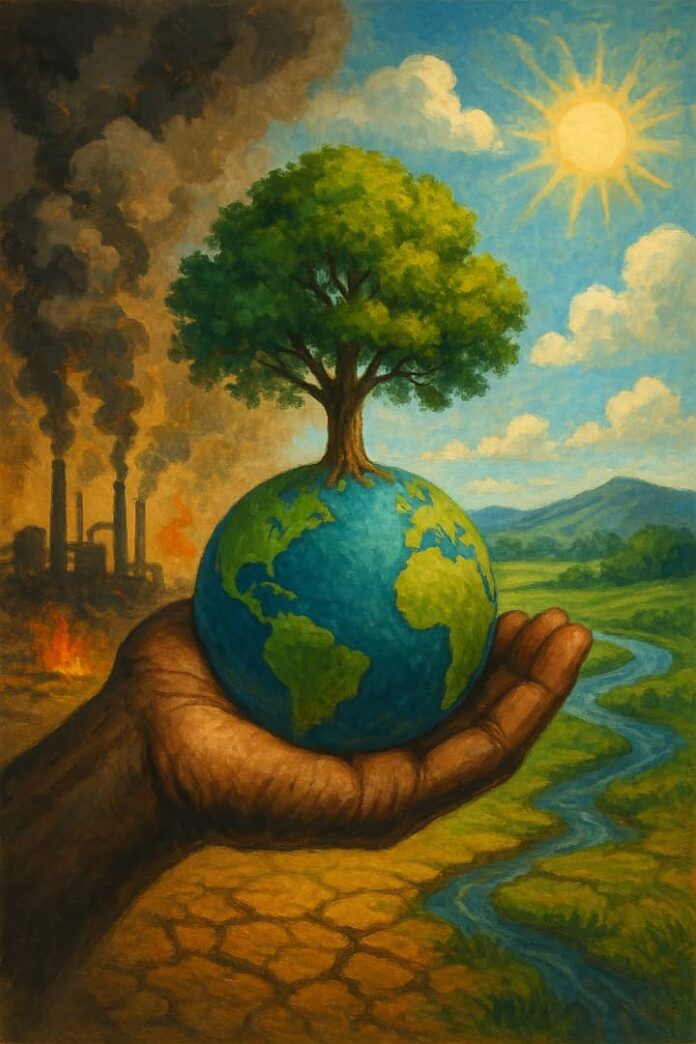What if the solution to climate change isn’t just in policy rooms or international pledges, but in our own daily routines?
Every small action we take, or fail to take, casts a ripple across the planet we call home.
Have you ever considered how the ripple effects of your daily habits shape the environment? It’s easy to overlook the seemingly insignificant choices that collectively leave a lasting impact.
The United Nations defines climate change as the long-term shift in temperatures and weather patterns, primarily driven by human activity.
In Zambia, the effects have become increasingly visible, with rising temperatures in valleys, erratic rainfall patterns, seasonal droughts, flash floods, and shifting growing seasons.
The El Niño-induced drought, for instance, had a devastating reach affecting 84 out of 116 districts and placing an estimated 9 million people at risk.
It’s a stark reminder of how vulnerable Zambian communities are to climate-driven shocks.Yet, amid these challenges, it’s often easy to miss the role we, as individuals and communities, may play in fueling the problem.
According to Nsama Kearns, Executive Director of Care for Nature Zambia, climate change is accelerated by greenhouse gas emissions including carbon gases released from pesticides and nitrogen oxides.
“Sometimes, people involved in large-scale agriculture may not realize that the commodities they use contribute to climate change,” she explains.
Kearns further notes that even household practices, such as burning waste in open spaces, especially in areas lacking proper waste collection release harmful emissions.
“We see a spike in carbon concentrations during the dry season, particularly when people burn bushes, creating a heavier load in the atmosphere,” she adds.
She stresses the importance of adopting sustainable practices such as tree planting, forest preservation, and caring for natural vegetation at community level.
Meanwhile, Gift Simungwegwe, a supervisor at Tutelage Trust School, has been fostering a culture of environmental responsibility among learners.
“Learners and staff contribute to the problem through littering and burning,” Simungwegwe says, encouraging tree-planting and environmental education as part of the solution.
He also highlights industrial activities particularly in high density industrial zones that emit greenhouse gases.
“The smoke that rises into the atmosphere traps heat that would otherwise be reflected back, leading to global warming,” he explains.
While systemic shifts are vital, the battle against climate change also hinges on everyday choices. Reducing single-use plastics, for instance, helps cut down on waste that ends up in landfills and water bodies.
Choosing reusable bags, bottles, and containers, or simply switching off unused lights and appliances, are small acts that add up.
These mindful habits can significantly reduce carbon footprints and promote a more sustainable future.Tackling climate change requires more than awareness, it calls for collective action.
By reducing waste, conserving energy, and embracing eco-friendly practices, we can all become part of the cure and contribute to a healthier planet.

